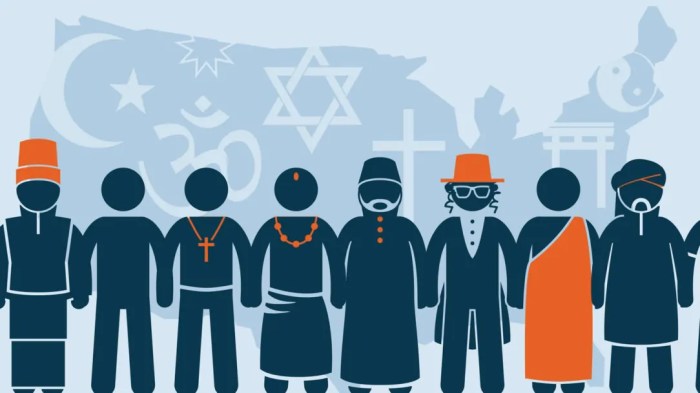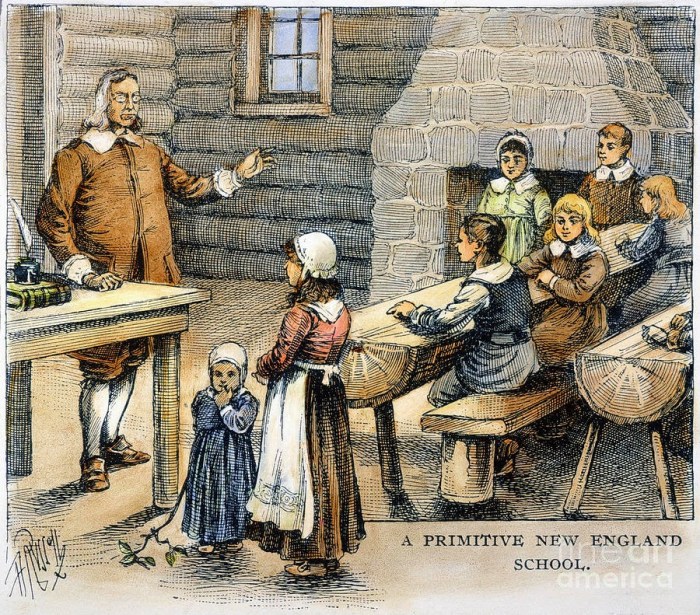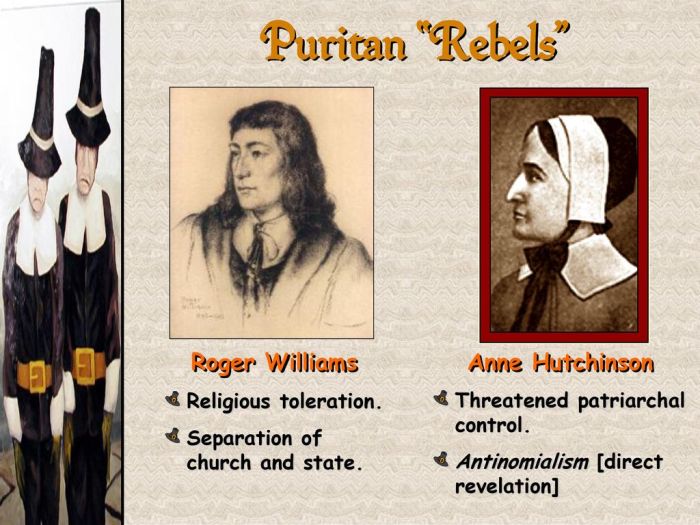Religious toleration violated the puritan understanding of moral liberty, a concept deeply rooted in their religious beliefs and historical context. This essay delves into the Puritan perspective on religious toleration, exploring the tensions between their commitment to moral liberty and the perceived threat posed by religious diversity.
The Puritans believed that tolerating other religions would lead to moral decay and societal decline, a conviction that shaped their policies and practices. This essay examines the consequences of the Puritan rejection of religious toleration, including social unrest and persecution, and analyzes the impact of their understanding on the development of American religious freedom.
Religious Toleration: Religious Toleration Violated The Puritan Understanding Of Moral Liberty

Religious toleration, as understood by Puritans, referred to the allowance of religious beliefs and practices that differed from their own. However, this tolerance was strictly limited and conditional upon adherence to certain moral and religious principles.
Puritanism, rooted in Calvinist theology, emphasized the sovereignty of God and the importance of moral purity. They believed that God had ordained a specific set of religious doctrines and practices, and that it was their duty to adhere to them strictly.
Puritans viewed religious toleration as a violation of their moral duty to uphold God’s laws and preserve the purity of their faith. They argued that tolerating other religions would lead to the spread of heresy, undermine the authority of the church, and ultimately result in the corruption of society.
Moral Liberty
Moral liberty, for Puritans, meant the freedom to live in accordance with God’s laws and moral principles. They believed that individuals had a responsibility to conform to the moral standards set forth by the church and the community.
Puritans viewed religious toleration as a threat to moral liberty. They believed that allowing individuals to hold and practice different religious beliefs would lead to moral confusion and the breakdown of social order.
They argued that tolerating other religions would weaken the moral fabric of society and lead to a decline in public morality and virtue.
Conflict and Consequences, Religious toleration violated the puritan understanding of moral liberty
The Puritan rejection of religious toleration led to tensions and conflicts within Puritan communities and with other religious groups.
Puritans often persecuted individuals who held different religious beliefs, such as Quakers, Baptists, and Catholics. They used laws and punishments to suppress dissenting voices and enforce religious conformity.
The Puritan intolerance of other religions had severe consequences for individuals and communities. It led to social unrest, persecution, and the suppression of religious freedom.
Historical Significance
The Puritan understanding of religious toleration had a significant impact on the development of American religious freedom.
The Puritan legacy of intolerance contributed to the early persecution of religious minorities in the American colonies.
However, the Puritan emphasis on moral liberty also laid the foundation for the eventual development of religious freedom and pluralism in the United States.
Modern understandings of religious toleration differ from the Puritan perspective in their emphasis on individual rights, freedom of conscience, and the separation of church and state.
FAQ Corner
What was the Puritan understanding of religious toleration?
The Puritans believed that religious toleration violated their understanding of moral liberty and would lead to moral decay and societal decline.
How did the Puritans’ rejection of religious toleration affect society?
The Puritan rejection of religious toleration led to social unrest, persecution, and the suppression of dissenting religious views.
What is the legacy of the Puritan understanding of religious toleration?
The Puritan understanding of religious toleration continues to influence contemporary debates about religious liberty and pluralism, highlighting the ongoing tensions between religious freedom and the preservation of moral values.

